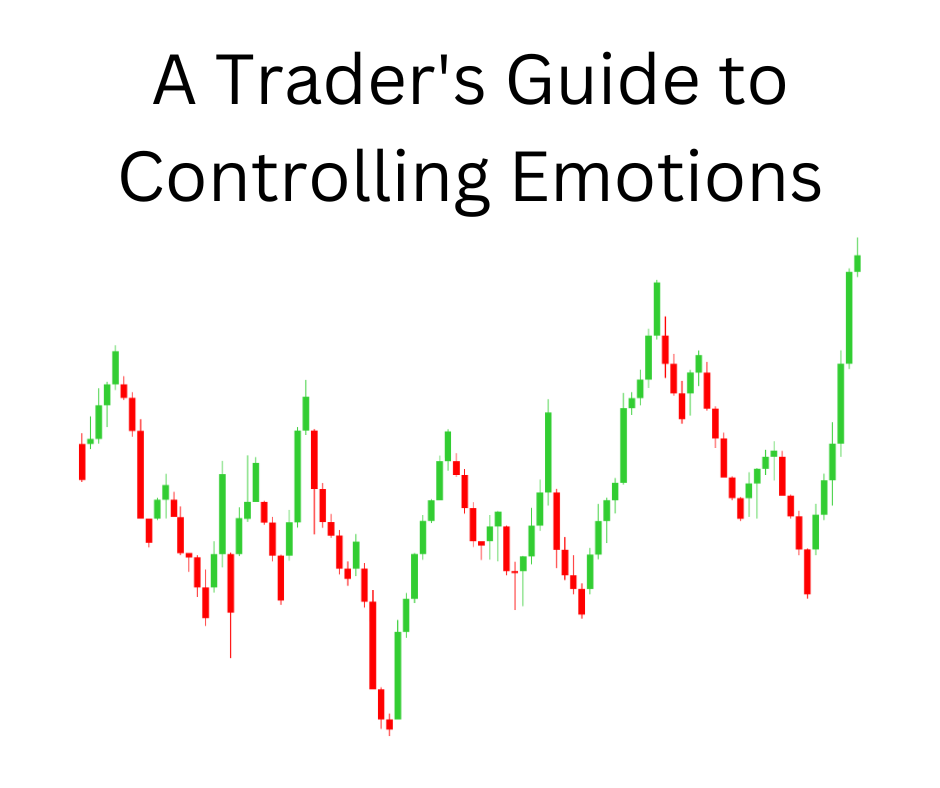Emotional control is crucial in Forex trading because emotions can cloud your judgment, leading to poor decision-making and, ultimately, financial losses. As a trader, it’s essential to be objective, focused, and disciplined.
Mastering your emotions is the key to success in this highly volatile market.
Understanding Emotions and Trading Psychology
Trading psychology refers to the mental and emotional aspects that influence a trader’s decision-making process. It encompasses a wide range of emotions, such as fear, greed, and overconfidence, which can significantly impact trading performance.
Emotions that can impact trading performance
Several emotions can negatively impact your trading performance. Fear, for example, can cause you to exit a trade prematurely, while greed can lead you to take on unnecessary risks. Overconfidence may result in overtrading, and frustration can lead to impulsive decision-making.
Common emotional biases in trading
Emotional biases are preconceived notions or beliefs that can lead to irrational decision-making in trading. Some common emotional biases include confirmation bias, recency bias, and loss aversion.
Confirmation bias occurs when a trader focuses on information that confirms their beliefs while ignoring contradicting data. Recency bias is the tendency to give more weight to recent events, while loss aversion refers to the strong preference for avoiding losses over acquiring gains.

Identifying Your Emotional Triggers
Understanding your personal emotional triggers
To master your emotions, you need to understand your emotional triggers. These are specific situations or events that provoke strong emotional reactions, potentially leading to poor trading decisions. By identifying your triggers, you can work on managing them more effectively.
Common triggers that affect traders
Some common triggers that affect traders include market volatility, news events, and personal stressors. For instance, market volatility may cause anxiety or fear, while news events may lead to impulsive decisions based on emotion rather than objective analysis.
Tracking your emotions during trading
One way to identify your emotional triggers is by tracking your emotions during trading. Keep a trading journal and document your emotional state throughout the day. Note any specific events or situations that evoke strong emotions and how they impacted your decision-making. This practice will help you recognize patterns and develop strategies to manage your emotional triggers more effectively.
Developing Emotional Intelligence
Definition of emotional intelligence
Emotional intelligence (EI) is the ability to recognize, understand, and manage your emotions and the emotions of others. In trading, having high EI can help you make better decisions by allowing you to manage your emotional triggers more effectively.
Benefits of emotional intelligence in trading
High emotional intelligence can lead to improved decision-making, greater discipline, and reduced stress in trading. By being able to manage your emotions, you can stay focused on your trading plan, avoid impulsive decisions, and adapt to changing market conditions more effectively.
Strategies to develop emotional intelligence
Developing emotional intelligence involves self-awareness, self-regulation, motivation, empathy, and social skills. Some strategies to improve your EI include mindfulness practices, journaling, seeking feedback, and working with a mentor or coach.
Building a Trading Plan
Components of a trading plan
A solid trading plan consists of several components, including your trading goals, trading strategy, risk management rules, and performance evaluation criteria. It should also cover aspects such as entry and exit points, position sizing, and trade management. Your trading plan should be tailored to your personal trading style, risk tolerance, and financial objectives.
Incorporating emotional regulation strategies in a trading plan
Incorporating emotional regulation strategies into your trading plan can help you manage your emotions more effectively. Some ways to do this include setting realistic goals, defining specific risk management rules, and establishing a process for evaluating and adjusting your plan as needed. Additionally, you can include regular breaks and stress-reduction techniques, such as meditation or exercise, to help maintain emotional balance during trading sessions.
Practicing Mindfulness
Definition of mindfulness
Mindfulness is a mental state achieved by focusing your awareness on the present moment while calmly acknowledging and accepting your feelings, thoughts, and bodily sensations. Practicing mindfulness can help you become more aware of your emotions, allowing you to recognize and manage them more effectively.
Mindfulness techniques for traders
There are several mindfulness techniques that traders can use to manage their emotions, such as meditation, deep breathing exercises, and progressive muscle relaxation. Meditation can help you gain clarity and improve focus, while deep breathing exercises can help you reduce stress and anxiety. Progressive muscle relaxation involves tensing and relaxing specific muscle groups, helping to release tension and promote relaxation.
Benefits of mindfulness in trading
Incorporating mindfulness practices into your trading routine can lead to numerous benefits, such as reduced stress, improved emotional regulation, and enhanced decision-making. By becoming more self-aware, you can better recognize and manage your emotional triggers, which can ultimately lead to improved trading performance.
Coping with Losses
Common emotional reactions to losses
Losses are an inevitable part of trading, and how you cope with them can significantly impact your overall performance. Common emotional reactions to losses include frustration, anger, disappointment, and anxiety. If not managed properly, these emotions can lead to impulsive decisions, overtrading, and further losses.
Strategies to cope with losses
There are several strategies to help you cope with trading losses more effectively. First, accept that losses are a natural part of trading and learn from them. Analyze your trades to identify any mistakes or areas for improvement. Second, maintain a positive mindset and focus on your long-term goals rather than dwelling on individual losses. Finally, ensure that your risk management rules are robust and consistently applied, helping to minimize the impact of losses on your trading account.
Tips to prevent losses from impacting future trades
To prevent losses from negatively affecting your future trades, it’s essential to separate your emotions from your decision-making process. Take breaks between trades to reset your emotional state, review your trading plan, and remind yourself of your long-term objectives. Additionally, consider implementing a “cooling-off” period after a loss to avoid impulsive decisions and give yourself time to process and learn from the experience.
Managing Risk
Overview of risk management in trading
Risk management is a crucial aspect of trading that involves identifying, assessing, and mitigating potential risks to protect your trading capital. Effective risk management strategies can help you minimize losses, preserve your account balance, and ensure the longevity of your trading career.
Emotional factors that impact risk management
Emotions can significantly impact your ability to manage risk effectively. Fear, for example, may lead you to set overly conservative stop-loss levels or avoid profitable trades. On the other hand, greed may cause you to take on excessive risk or hold onto losing trades in the hope of a turnaround.
Strategies to improve risk management skills
To improve your risk management skills, establish clear rules and guidelines for position sizing
, stop-loss placement, and profit targets. Incorporate these rules into your trading plan and consistently follow them to minimize the influence of emotions on your decision-making process. Additionally, consider using tools such as risk-reward ratios and drawdown limits to help you maintain a balanced approach to risk-taking.
Establishing Healthy Habits
Importance of a healthy lifestyle in trading
A healthy lifestyle is essential for maintaining optimal physical and mental health, which can have a significant impact on your trading performance. By prioritizing self-care and adopting healthy habits, you can reduce stress, improve focus, and enhance your emotional regulation skills.
Habits to improve physical and mental health
Some habits that can improve your physical and mental health include regular exercise, a balanced diet, and sufficient sleep. Exercise can help reduce stress, improve mood, and increase energy levels. A balanced diet can provide the necessary nutrients to support cognitive function and overall well-being. Getting enough sleep is crucial for maintaining focus, memory, and decision-making abilities.
The impact of healthy habits on trading performance
By incorporating healthy habits into your daily routine, you can experience a range of benefits that positively impact your trading performance. Improved focus, reduced stress, and enhanced emotional regulation can lead to better decision-making and overall trading success.
Seeking Support
The importance of a support system
A strong support system can play a vital role in managing emotions and maintaining a healthy mindset in trading. By connecting with like-minded individuals, you can share experiences, learn from others, and find encouragement during challenging times.
Finding a trading community
To find a trading community, consider joining online forums, social media groups, or local meetups focused on Forex trading. Engaging with these communities can provide valuable insights, resources, and connections to help you grow as a trader and manage your emotions more effectively.
Professional support options
Professional support options, such as trading coaches, mentors, or therapists, can also be beneficial in managing emotions and improving trading performance. These professionals can provide tailored guidance, strategies, and tools to help you better understand and manage your emotional triggers, develop emotional intelligence, and enhance your trading skills.
The Role of Technology
Overview of technology in trading
Technology plays a significant role in modern trading, with tools such as trading platforms, charting software, and algorithmic trading systems shaping the way traders analyze and execute trades. While technology can provide numerous benefits, it can also introduce new challenges and potential emotional pitfalls.
Benefits and drawbacks of using technology
The benefits of using technology in trading include improved efficiency, access to real-time market data, and the ability to automate trading strategies. However, drawbacks may include overreliance on technology, the potential for technology-induced stress, and the risk of becoming disconnected from the emotional aspects of trading.
Strategies to use technology for emotional regulation
To use technology for emotional regulation, consider leveraging tools that help you monitor your emotions and manage your trading performance. For example, some trading platforms offer features to track your trading history, journal your trades, and set alerts for specific market conditions. Additionally, consider using apps or software to support your mindfulness practice, track your habits, or connect with supportive trading communities.
Conclusion
Mastering your emotions is a critical aspect of successful Forex trading. By understanding the psychological aspects of trading, identifying your emotional triggers, and developing emotional intelligence, you can improve your decision-making and overall performance.
Incorporating emotional regulation strategies into your trading plan, along with adopting healthy habits, seeking support, and leveraging technology, can help you navigate the emotional challenges of Forex trading and achieve long-term success.
